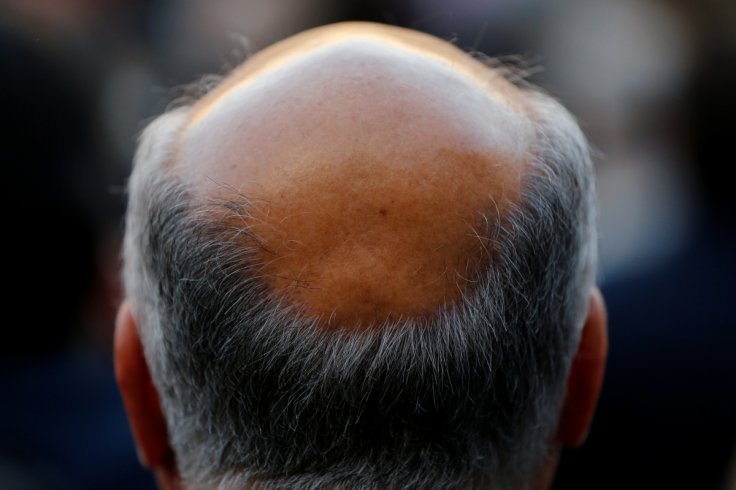Men who are bald are at a greater risk of having serious symptoms of the coronavirus or COVID-19, claims new research. Brown University Professor Carlos Wambier conducted two studies in Spain that found that an excessively higher number of men having male pattern baldness were admitted to the hospitals with coronavirus, as reported by the Telegraph.
The lead author of the study, Brown, believes that the baldness acts as an ideal predictor of the severity at which people will suffer from the deadly novel virus disease. The first study that was conducted found that around 71 percent of the 41 patients who got diagnosed with coronavirus in the Spanish hospitals were bald, with the background rate of baldness for the white men having similar age to the patients between 31 and 53 percent.
Bald Men at a Risk of Having Serious Symptoms of COVID-19

The second study that was published in the Journal of the American Academy of Dermatology, found that around 79 percent of the 122 coronavirus male patients in Madrid hospitals were bald.
Scientists have argued on the fact that androgens, which are male sex hormones, might contribute to hair loss and also increase the potential of the coronavirus to attack cells. This means that the hormone-suppressing drugs might probably be used for slowing down the progress of the disease caused by the deadly virus and allow the sufferers time to recover.
Hormone-Suppressing Drugs to Cure Coronavirus?
According to Wambier, androgens are the gateway for the virus to enter the cells. He told the Telegraph, "We think androgens or male hormones are definitely the gateway for the virus to enter our cells."
However, other researchers and experts have warned about the usage of such drugs. Prostate Cancer UK head of policy Karen Stalbow told the Telegraph that more evidence is required backing the claims before such drugs get used for treating the coronavirus patients.
COVID-19 Global Crisis
The coronavirus outbreak in recent times has created a major stir around the world claiming the lives of more than 390,000 people globally and infecting over 6.6 million people worldwide in over 170 countries. The major nations around the world were forced to impose strict lockdowns to contain the spread of the virus as the world does not have a cure for the disease caused by the virus yet.
Scientists and researchers also have warned that there might be a second wave of the virus outbreak as the nations are slowly trying to get their economy running in recent times. The WHO has also recently warned that the threat of the virus does not get over until there are no virus cases anywhere in the world.









